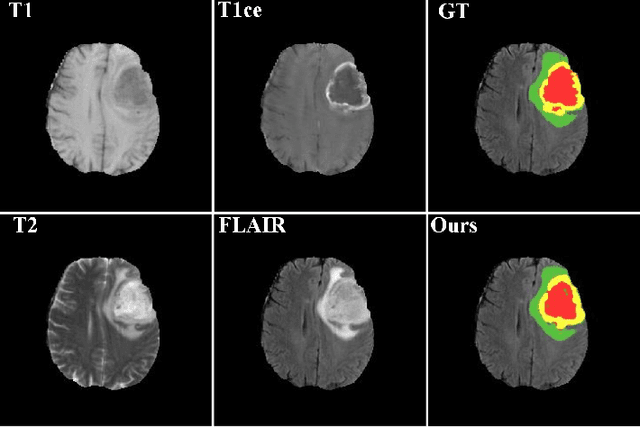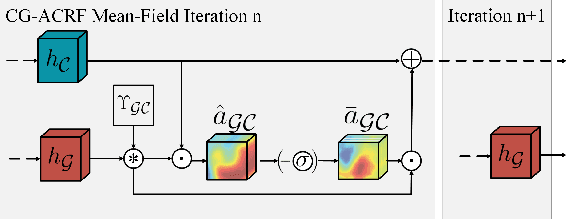CANet: Context Aware Network for 3D Brain Tumor Segmentation
Paper and Code
Jul 15, 2020



Automated segmentation of brain tumors in 3D magnetic resonance imaging plays an active role in tumor diagnosis, progression monitoring and surgery planning. Based on convolutional neural networks, especially fully convolutional networks, previous studies have shown some promising technologies for brain tumor segmentation. However, these approaches lack suitable strategies to incorporate contextual information to deal with local ambiguities, leading to unsatisfactory segmentation outcomes in challenging circumstances. In this work, we propose a novel Context-Aware Network (CANet) with a Hybrid Context Aware Feature Extractor (HCA-FE) and a Context Guided Attentive Conditional Random Field (CG-ACRF) for feature fusion. HCA-FE captures high dimensional and discriminative features with the contexts from both the convolutional space and feature interaction graphs. We adopt the powerful inference ability of probabilistic graphical models to learn hidden feature maps, and then use CG-ACRF to fuse the features of different contexts. We evaluate our proposed method on publicly accessible brain tumor segmentation datasets BRATS2017 and BRATS2018 against several state-of-the-art approaches using different segmentation metrics. The experimental results show that the proposed algorithm has better or competitive performance, compared to the standard approaches.
 Add to Chrome
Add to Chrome Add to Firefox
Add to Firefox Add to Edge
Add to Edge